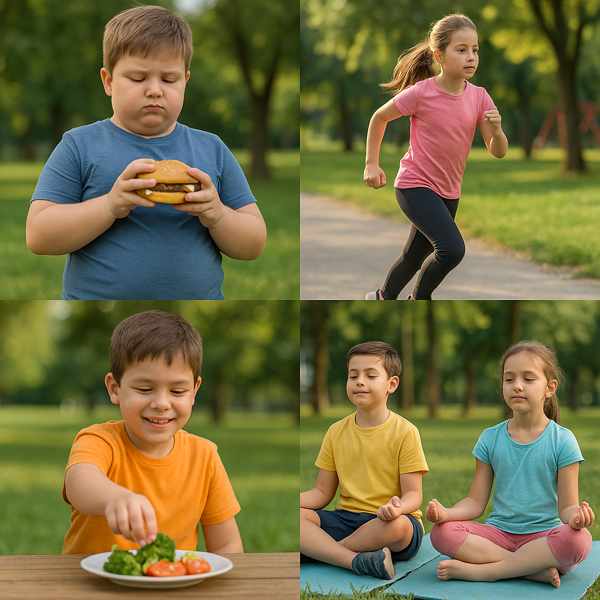A Parent’s Guide to Weight Loss for Kids
A Parent’s Guide to Weight Loss for Kids
Blog Article

Helping children maintain a healthy weight is critical for their overall well-being.
But losing weight as a child isn’t about strict diets or intense workouts—it's about creating balance that promote confidence.
The Importance of Healthy Weight in Children
Excess weight in children can lead to chronic conditions such as:
- Type 2 diabetes
- High blood pressure and cholesterol
- Affects daily activities and development
- Can impact academic and emotional health
Early intervention helps kids grow into healthier, happier adults.
Getting Started the Right Way
Weight loss for kids should focus on health, not numbers.
Tips include:
- Let them play, run, or ride bikes daily
- Limit sugary drinks and processed foods
- Everyone benefits from healthier choices
- Focus on healthy behaviors, not just weight
Healthy Eating Made Simple
Great options include:
- Make healthy eating more appealing
- Whole grains like oats and brown rice
- Lean proteins like eggs, chicken, or beans
- Healthy snacks like yogurt, nuts, or apple slices
Avoid using food as a reward or punishment—this can create unhealthy emotional patterns.
Keeping Kids Active
Recommended activities:
- Makes exercise exciting
- Helps build confidence and teamwork
- Walking the dog or doing family hikes
- Limiting screen time and encouraging outdoor play
The goal is to make movement fun, not a chore.
The Role of Family Support
Parents can help by:
- Modeling healthy habits
- Use positive language about bodies and health
- Small changes over time make a big difference
- Focusing on health, not weight
Children mirror adult behaviors—so more information lead by example.
Knowing When It’s Time for Guidance
Consult a pediatrician or dietitian if:
- Your child gains weight rapidly
- They feel sad or ashamed about their body
- Expert guidance ensures healthy development
Working with professionals ensures your child receives age-appropriate support.
Conclusion
Weight loss for kids isn’t about unrealistic goals, but about teaching them to build lifelong healthy habits.
Start small, stay positive, and remember—your encouragement makes all the difference. Report this page